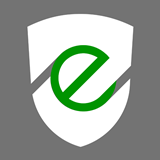e-Customs
Topic description
General

Digital signature and electronic business registration
A non-Slovenian company (hereinafter: user) who intends to start the electronic message exchange with the Slovenian Customs, shall carry out the necessary procedure to obtain registration with the Slovenian Customs.
1. The user shall first obtain the following:
a) qualified digital certificate
The user will need a qualified digital certificate for electronic signature of their messages. It shall be issued by one of Slovenian certification authorities for digital certificates. If the qualified digital certificate is required with:
- Halcom-ca (http://wwweng.halcom-ca.si/index.php?section=1), no Slovenian tax number is needed
- Postar-ca, (http://postarca.posta.si/), no Slovenian tax number is needed
- SIGOV-CA (www.sigov-ca.gov.si),
- SIGEN-CA (www.sigen-ca.si),
- AC NLB (www.nlb.si).
The qualified digital certificate shall be issued for a natural person employed by a legal person. The holder of the qualified digital certificate is expected to be a person authorized by the user for managing their electronic data interchange with the Slovenian Customs (hereinafter: authorized person).
Note: The qualified digital certificate, which is mandatory for electronic signing of messages, can also be used for encryption of electronic messages. However, for the sole purpose of message encryption, a so-called self-signed digital certificate may also be used instead of the qualified digital certificate.
b) identifier
The user must obtain an identifier from a provider of data transmission service. One of the following providers can be chosen:
- Actual I.T. (http://www.actual.si/),
- Panteon Group (http://www.panteongroup.si/index.aspx),
- TRINET Informatika, (http://www.trinet.si/)
- ZZI. (http://www.zzi.si/wps/portal/Public/home).
The identifier assigned to the user by the data transmission service provider serves as an “address” to identify electronic messages received by the user from the Slovenian Customs.
More detailed information is available from data transmission service providers.
2. When the qualified digital certificate and the identifier have been obtained, the user shall provide the Slovenian Customs (e-mail: sd.fu(at)gov.si), with the following:
- the public part of the qualified digital certificate exported in Base64 format,
- the identifier,
- a duly completed and scanned application form for the authorized person.
3. If any additional information needed the user is kindly asked to contact e-mail: sd.fu(at)gov.si.
4. Once the Slovenian Customs have received all of the above, the user will be registered in the Customs´ information system and will thus be allowed to start electronic message exchange. Upon registration, the user will receive all further information.
5. The European Commission, Anti-Fraud Office (OLAF) systematically replicates data from the sources operated by the Commission on the basis of Regulation (EU) No 952/2013 laying down the Union Customs Code into the import, export and transit directory. The information collected usually refers to companies, but may also refer to individuals. You can find further information on the data collected by Anti-Fraud Office into the import, export and transit directory in the Privacy Statemen.



